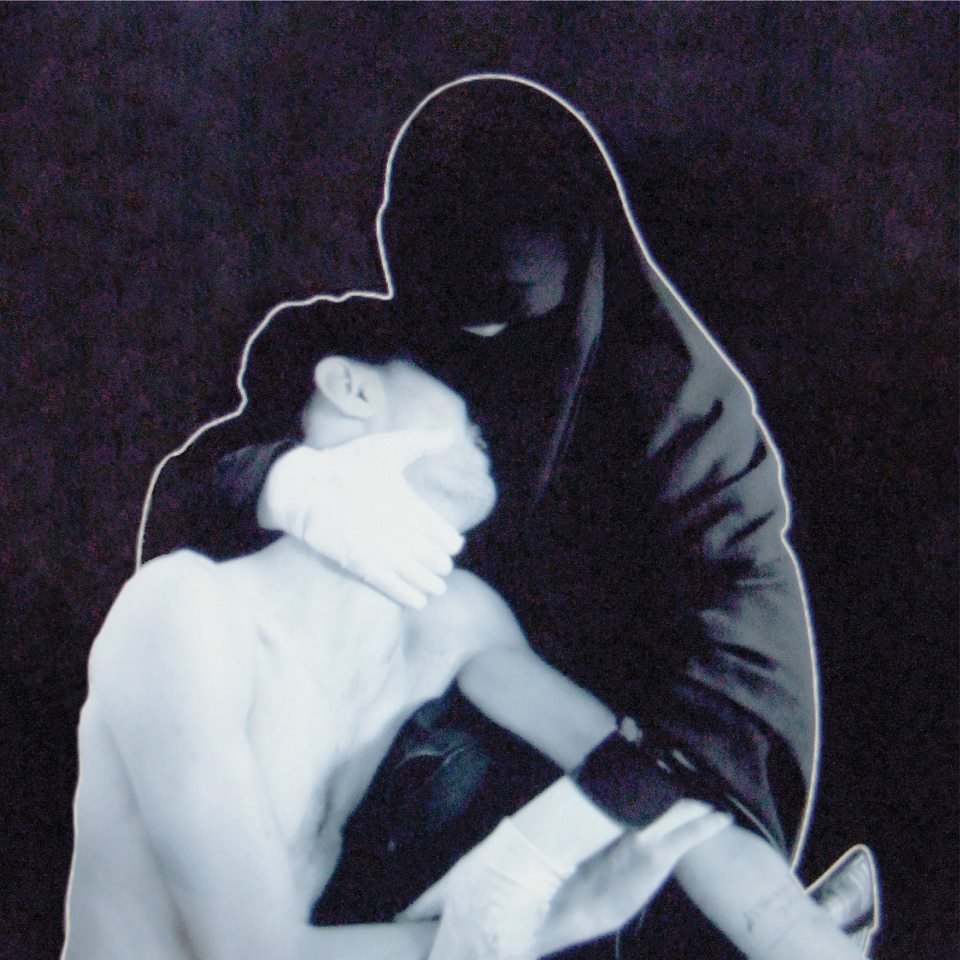
(III) is the third studio album by Canadian electronic music duo Crystal Castles. The album was released in the United Kingdom on November 12, 2012. It was initially planned to be released on November 5, 2012 before being delayed. Produced entirely by Ethan Kath, (III) was recorded in Warsaw and mixed in London. The album addresses the theme of oppression, with the musicians using different pedals and keyboards to create a diverse “palette of sound”. On October 9, 2012, the track listing for the album was revealed via the duo’s official Facebook page.
The album’s first two singles, “Plague” and “Wrath of God”, were made available for free download on the duo’s SoundCloud page on July 25 and September 26, 2012, respectively. The accompanying music video for “Plague” debuted on September 24, 2012 and uses footage from Andrzej Żuławski’s 1981 film Possession. “Affection” was released as the album’s third single on October 31, 2012. “Violent Youth” premiered on Zane Lowe’s BBC Radio 1 show on November 1, 2012.
The album cover features a picture by Spanish photographer Samuel Aranda. The image depicts a woman named Fatima al-Qaws holding her son, Zayed, who was exposed to tear gas during a street demonstration in Sana’a, Yemen, on October 15, 2011.
(III) has received mostly positive reviews from music critics. At Metacritic, which assigns a normalised rating out of 100 to reviews from mainstream critics, the album received an average score of 76, based on 33 reviews, which indicates “generally favorable reviews”. Louis Pattison of the NME commented, “[I]n toning down the shock and awe, [Crystal Castles have] revealed the beating heart at the centre of their work. The message, still, is that the world is a cruel and fucked-up place. But being doomed seldom sounded so beautiful.” Allmusic’s Heather Phares viewed (III) as the duo’s “most serious set of songs yet” and stated, “Artistic progress is as much about subtraction as it is about addition, and on III, Crystal Castles have made room to be sad, angry, pretty, and danceable at the same time.” Pitchfork Media’s Ian Cohen dubbed (III) “the duo’s most focused record”, adding, “While not as immediately striking as either Crystal Castles (I or II), the streamlined sound allows more maneuverability and subtle variety in the actual songwriting.” Jason Lipshutz of Billboard wrote that the album “continues [the duo’s] creative upward trajectory by offering some of the act’s most lavish pop moments”, calling it “an expertly produced album that, at just nearly 40 minutes, leaves fans wanting more”. The Guardian’s Tim Jonze argued that “Witch House is an obvious influence [on the album], and you could question whether the former chip-tune terrorists are still as ahead of the curve as they once were. It hardly matters when they can come up with stuff like ‘Child I Will Hurt You’, a dream-state lullaby that is both beautiful and unbearably sorrowful.”
In a review for BBC Music, Darren Loucaides commended Crystal Castles for “display[ing] steady progression” and opined that “[t]he ironic thing about (III) sounding so immense is that the tracks are typically less cluttered than the last two records. But the core elements are so big, like blasts of pure plasmic energy, that it sounds planet-sized.” Dan Pfleegor of Consequence of Sound noted that “III is less playful than the duo’s previous couple of offerings, but it’s thematic mood is much tighter and more fully realized.” Simon Price of The Independent stated that the album “shudders and shimmers like some massive, monstrous machine. But, when heard loud, the more accurate metaphors come from nature: flashes of lightning at the top end, earthquakes and landslides at the bottom.” Drowned in Sound’s Sean Adams quipped, “[I]f iii was a pizza it would be kinda disgusting to look at, it would never really cool down and it would probably give me indigestion, but it would taste absolutely delicious.” In a mixed review, Jesse Cataldo of Slant Magazine described (III) as “an album of earnest, expansive electronica from a duo few are expecting such sincerity from, and it edges them directly into the middle of the road”, while concluding, “In striving for something new, the duo has only found a more recognizable sort of tedium.” Annie Zaleski of The A.V. Club expressed, “[I]nstead of anarchist dance jams full of crunchy 8-bit noise, (III) is more like a static-filled radio station fading in and out of range.” Zaleski continued, “While (III) can use this disorientation effectively […] too often the music is irritating, not disruptive.” Hermione Hoby of The Observer felt that “there’s very little on this third LP that could qualify as ‘experimental’. Track after track leans heavily on the relentless four-to-the-floor of trance, with Alice Glass’s yelped vocals muffled under a weight of sound that’s simultaneously boring and abrasive.”
Track listing
All songs are written and composed by Ethan Kath and Alice Glass.
1. Plague 4:56
2. Kerosene 3:12
3. Wrath of God 3:07
4. Affection 2:37
5. Pale Flesh 3:00
6. Sad Eyes 3:27
7. Insulin 1:47
8. Transgender 3:05
9. Violent Youth 4:22
10. Telepath 3:55
11. Mercenary 2:39
12. Child I Will Hurt You 3:33
Personnel
Credits for (III) adapted from album liner notes.
Ethan Kath – producer (all tracks); mixing (1–6, 8–10)
Alice Glass – vocals
Samuel Aranda – cover photograph
Alex Bonenfant – vocal engineer (1–6, 8, 10, 11)
Brian Gardner – mastering
Jeremy Glover – vocal engineer (7, 9)
Jacknife Lee – synth (1, 5)
Lexxx – mixing (1–6, 8–10); vocal engineer (5, 11, 12)
